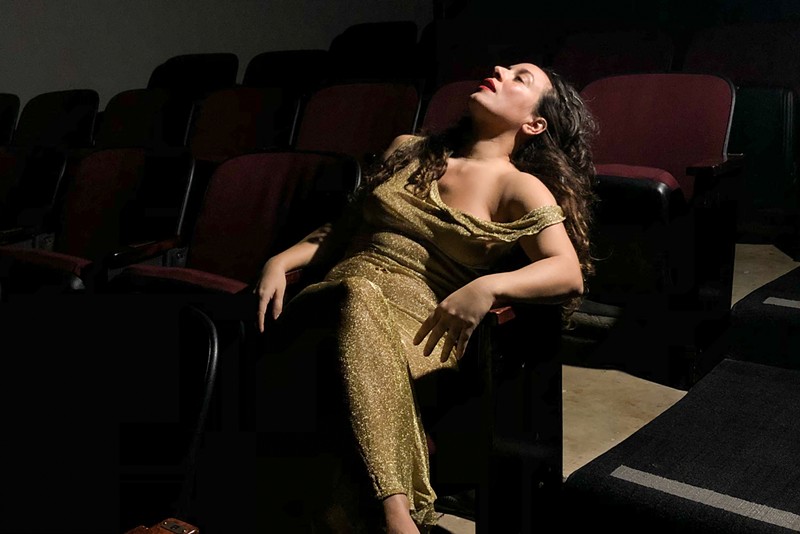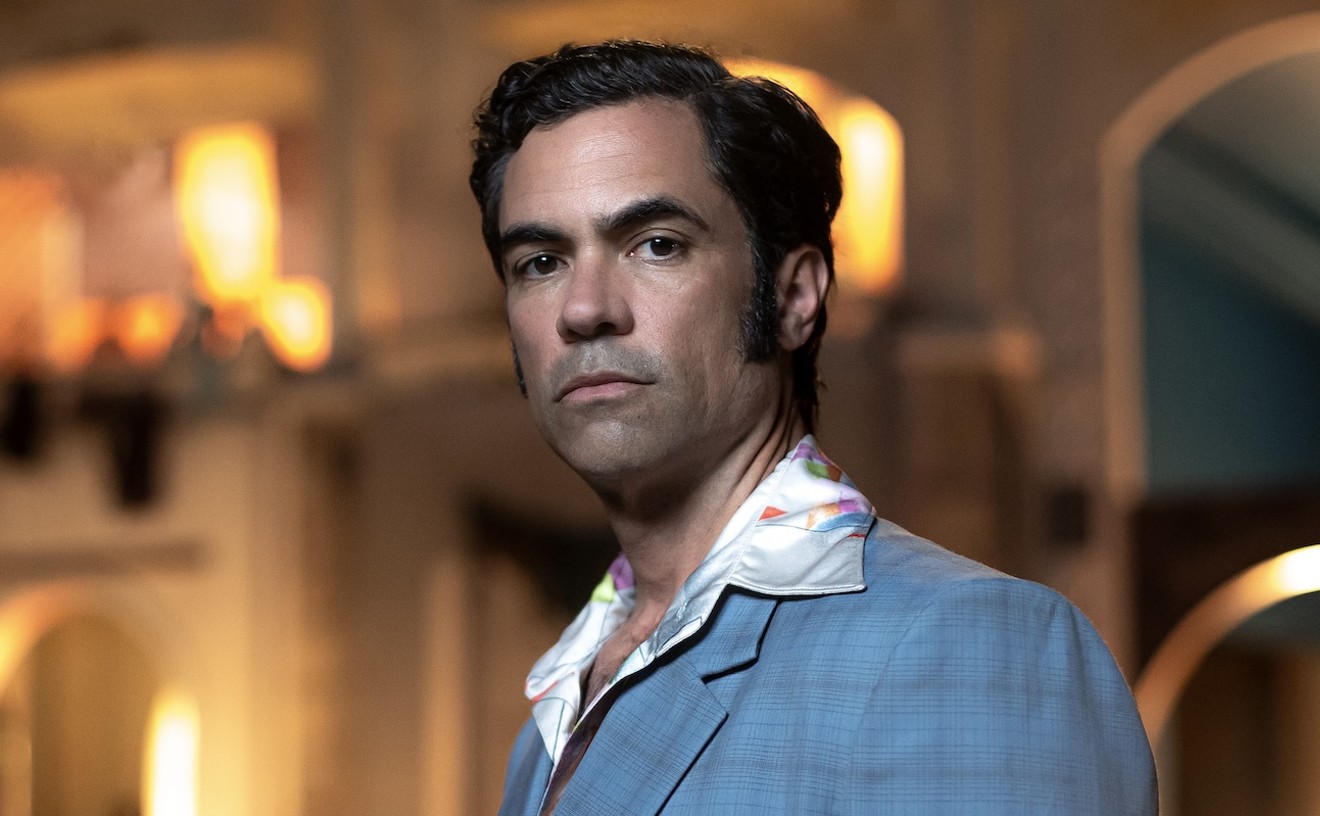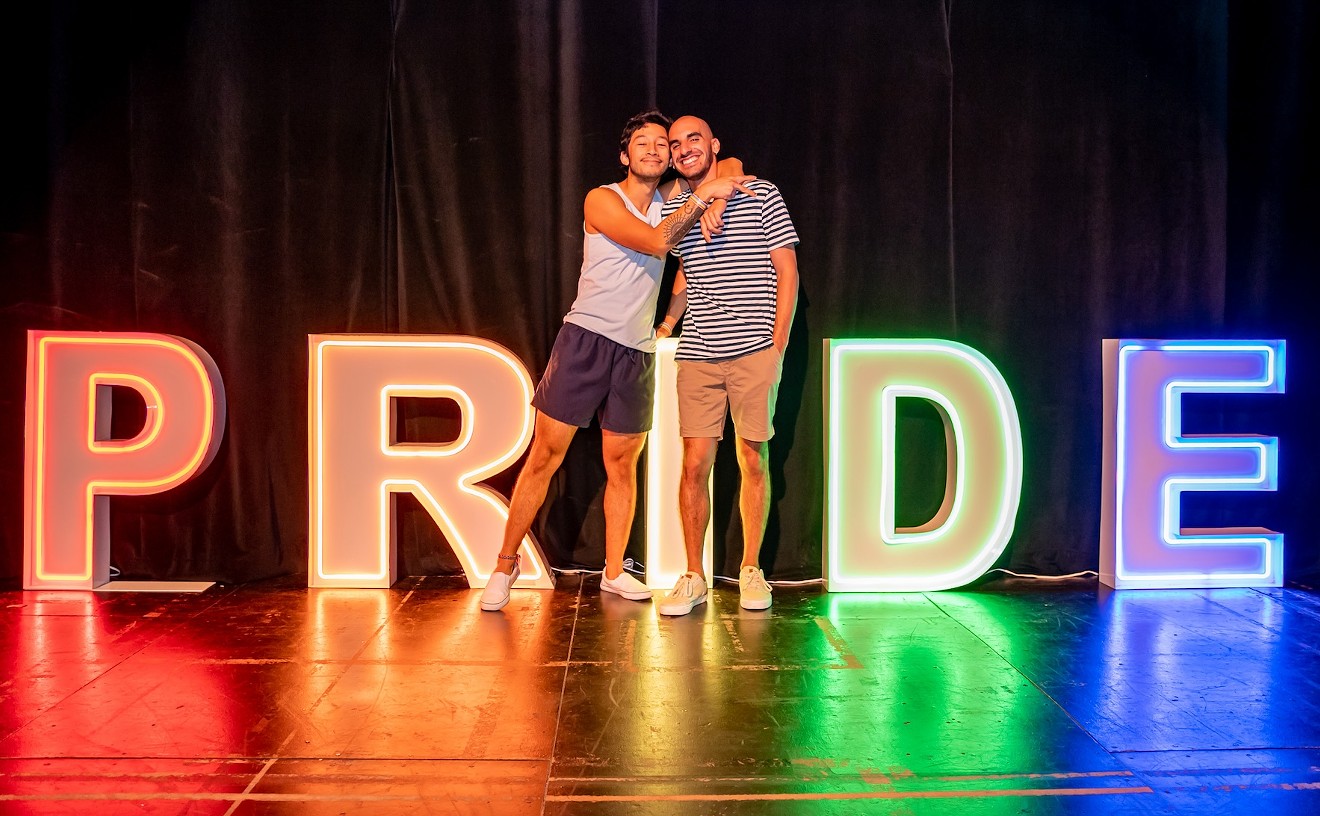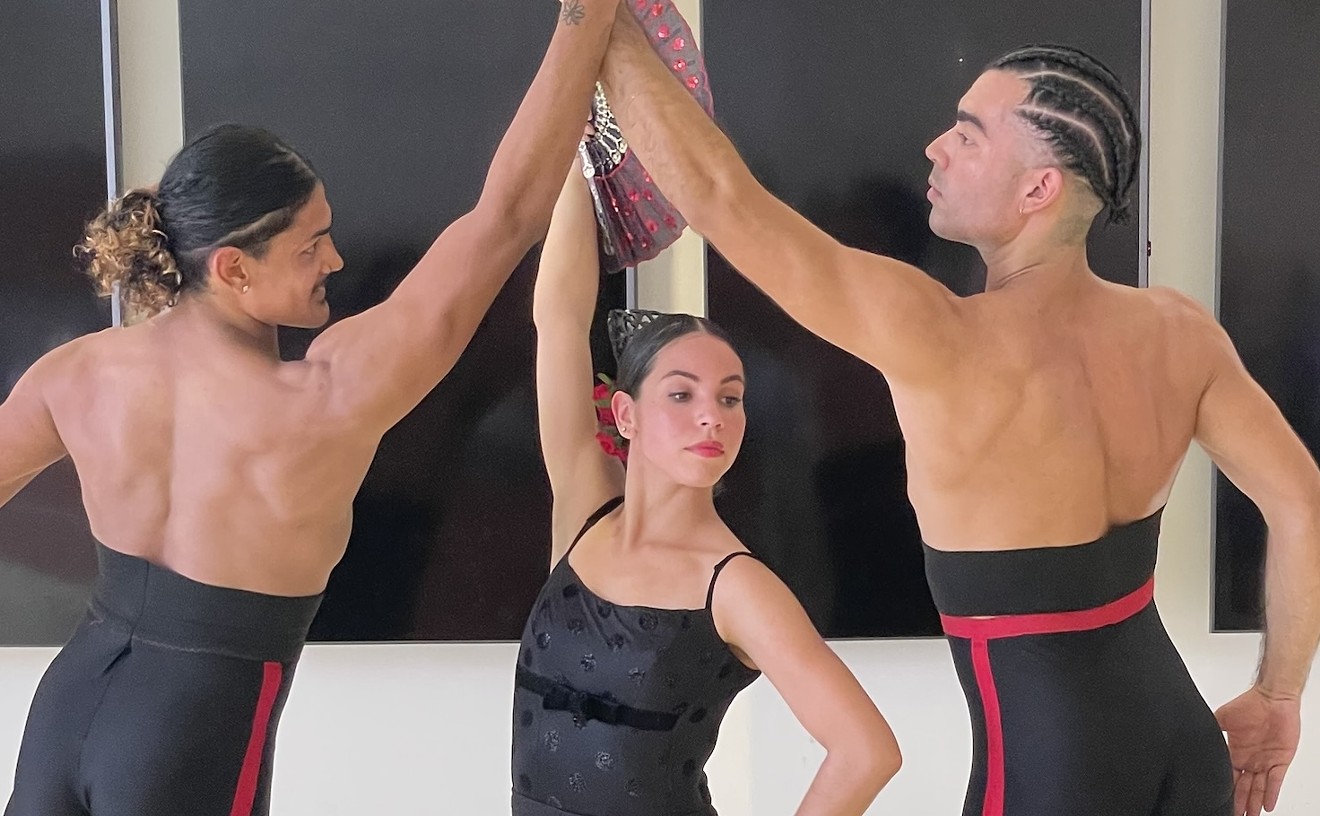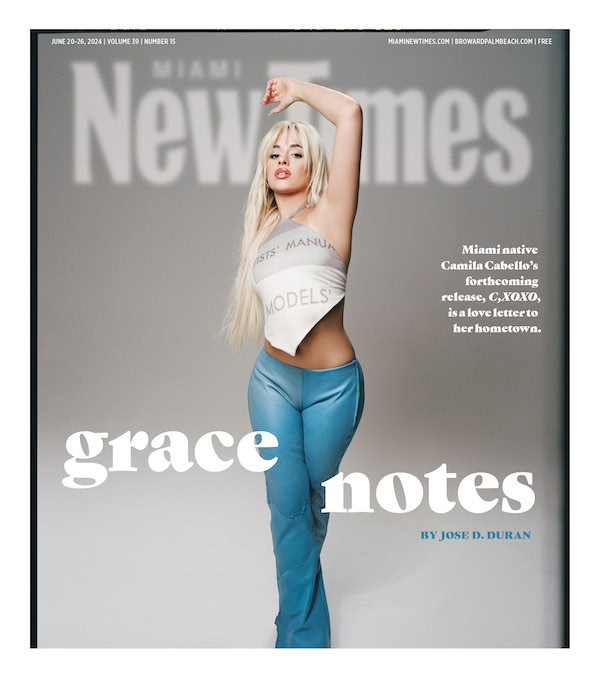Fast-forward a couple of decades, and Herrera led sold-out dance performances at the auditorium — not to mention other performing arts halls across South Florida, the state, and the country — as artistic director of Rosie Herrera Dance Theatre, which she founded in 2009. Herrera's influence and unique approach to modern dance reverberate far beyond her beloved hometown of Miami. That's why the National Center for Choreography-Akron, or NCCAkron, named Herrera the inaugural recipient of the Knight Choreography Prize.
Herrera will receive an unrestricted cash award of $30,000 and $20,000 in programmatic support over two years. According to NCCAkron, the award, made possible by the Knight Foundation, aims to provide artists with "essential time and space for the creative process, for research, and for rigorous play and positive failure."
"This award is affirming for me. In a way, I feel like a steward for our community," Herrera says. "I'm from Hialeah. I danced with Live in Color in Liberty City, Carol City, and Overtown. I worked in cabaret in Little Havana. I attended New World School. I founded my company in Miami. My work has always been about us — the unique beauty of our community. If I can be part of bringing Miami artists the recognition they deserve, I'm happy. This is for us. It feels really tender."
Established in 2015 to provide opportunities for research and development in dance, NCCAkron is a nonprofit organization that has worked with more than 400 dance artists across 65 cities. In a press release, NCCAkron's executive and artistic director, Christy Bolingbroke, commended Herrera for her artistry, originality, and impact.
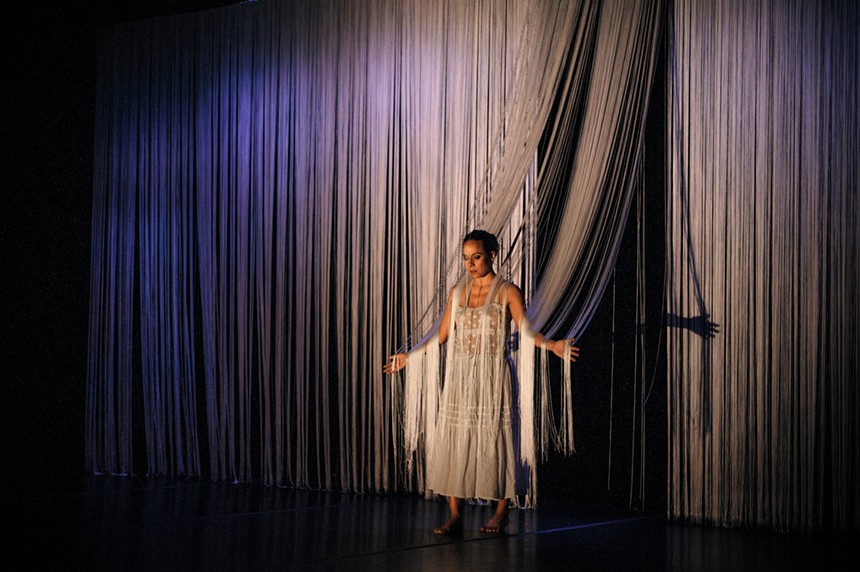
"Rosie Herrera shows up and shows out as an enduring artist from Miami," says Christy Bolingbroke, NCCAkron's executive and artistic director.
Photo by George Echevarria
Performances choreographed by Rosie Herrera Dance Theatre may fall under the modern dance category, but they incorporate styles and modes of expression that most traditional dance conservatories wouldn't dare teach their students. Combining Herrera's Cuban and Catholic heritage with burlesque, drag, hip-hop, and more — depending on who she's collaborating with and their gifts — the work of Rosie Herrera Dance Theatre aims to showcase individuality and shared humanity. Think of it as dance for the people.
"I say this all the time: One of the most impactful parts of my artistic journey is just being poor. Growing up, I was like, 'I need a job. What do you need, a salsa dancer that's dressed like a lobster? Absolutely, I can do that,'" she recalls. "My whole life, I've been drawn to these different modes of performance because they were scratching an itch deep inside of my soul that something else couldn't touch. When I started with cabaret, it was about understanding the value of humor and the disarming potential of beauty. When I went into hip-hop, I was seeing the radical, active power of individualism. When I discovered modern dance, it was like meeting myself for the first time."
A 2024 Guggenheim choreographic fellow, Herrera has seen her work commissioned across the nation for organizations such as New York's Ballet Hispanico, the Cincinnati Symphony Orchestra, Santa Barbara Dance Theater, Houston Met Dance, Boston Dance Theater, and the American Dance Festival. Yet, even though her work frequently takes her far from the South Florida heat, there's no place like home, especially when it comes to communing with live audiences.
"Man, you give the Miami audiences a little finger, and they're going to take the whole arm. I love that there is no self-consciousness to be seen, to be heard, to express what they're feeling," Herrera says. "There's a moment in the last show that I did when this cowboy comes onstage. This guy in the audience just burst into laughter the minute he saw the cowboy. Afterward, we talked about how people were so pissed at him for laughing in that moment. But I love that interchange. I love that he's a part of the performance in his laughter. Unique, beautiful Miami audiences are my favorites."
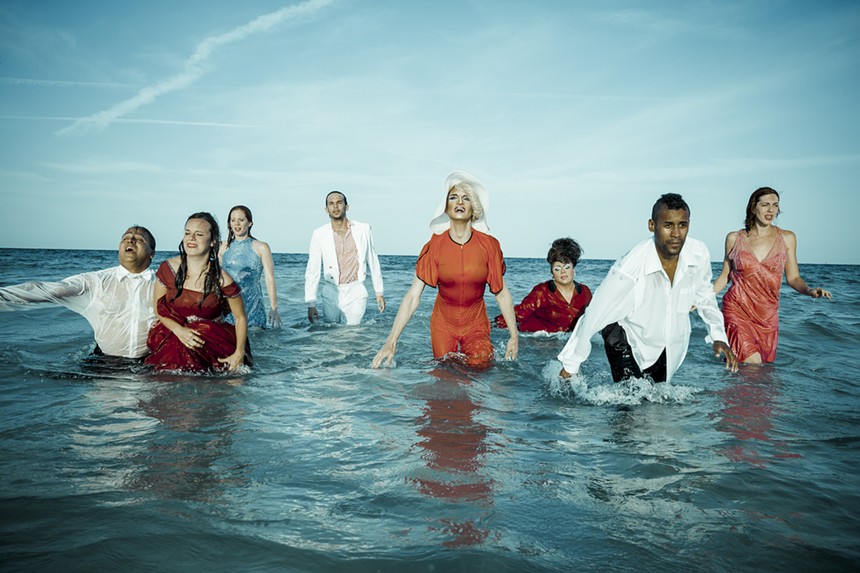
"Various Stages of Drowning: A Cabaret" was commissioned by Miami Light Project and the Adrienne Arsht Center in 2009.
Photo by Adam Reign
"We've had a mass exodus of artists ever since 2018. Within the Miami arts community, it's like the ocean. Things come, and they go. When you're a person who's anchored here, sometimes it can feel like we're building momentum, and then it goes away. These once-thriving art spaces were turned into malls that are now empty. They push out the heart and soul of a community because of greed. All people need to stay is just to be employed and paid for their time," she says.
"Miami should be an epicenter for dance in the U.S. Miami is the intersection of so many different cultures, with a lot of Caribbean influence. In Caribbean cultures, dance is a part of our everyday lives, not a luxury or something that you have learned to do. When you are from a culture where dance is a part of how you understand yourself, how you court, and how you communicate, it changes the way that you see dance. You're not second-by-second trying to dissect what's happening on stage. You're more open to feeling what is happening through your body," Herrera says.
The Knight Choreography Prize intends to honor those creators ushering in the future of dance. To Herrera, the future of her field is one that shines a light on the complete prism of humanity's beauty and gifts, unafraid of breaking barriers and free from the shackles of prescribed conventions.
"When I started out, I didn't know enough to know that modern dance looked a certain way and that I was doing something different. I was just speaking to my own truth and experience, as well as the truth of everybody else who was in the space," she says. "Audiences are hungry for work that provides catharsis, work that's culturally significant. People are interested in seeing themselves onstage. The future of dance is dependent on communities rising up, saying, 'This is what's important to us.' The time in dance to be clever is over. The time to be vulnerable is now."
Herrera is currently seeking organizations with whom to partner in order to produce Devocean, a series of workshops for professional dancers that will culminate in improvisational scores performed across South Florida's rapidly disappearing shoreline.

